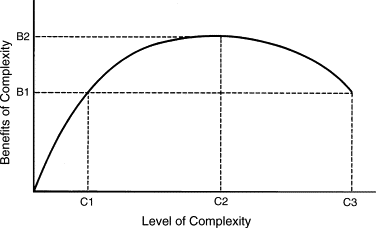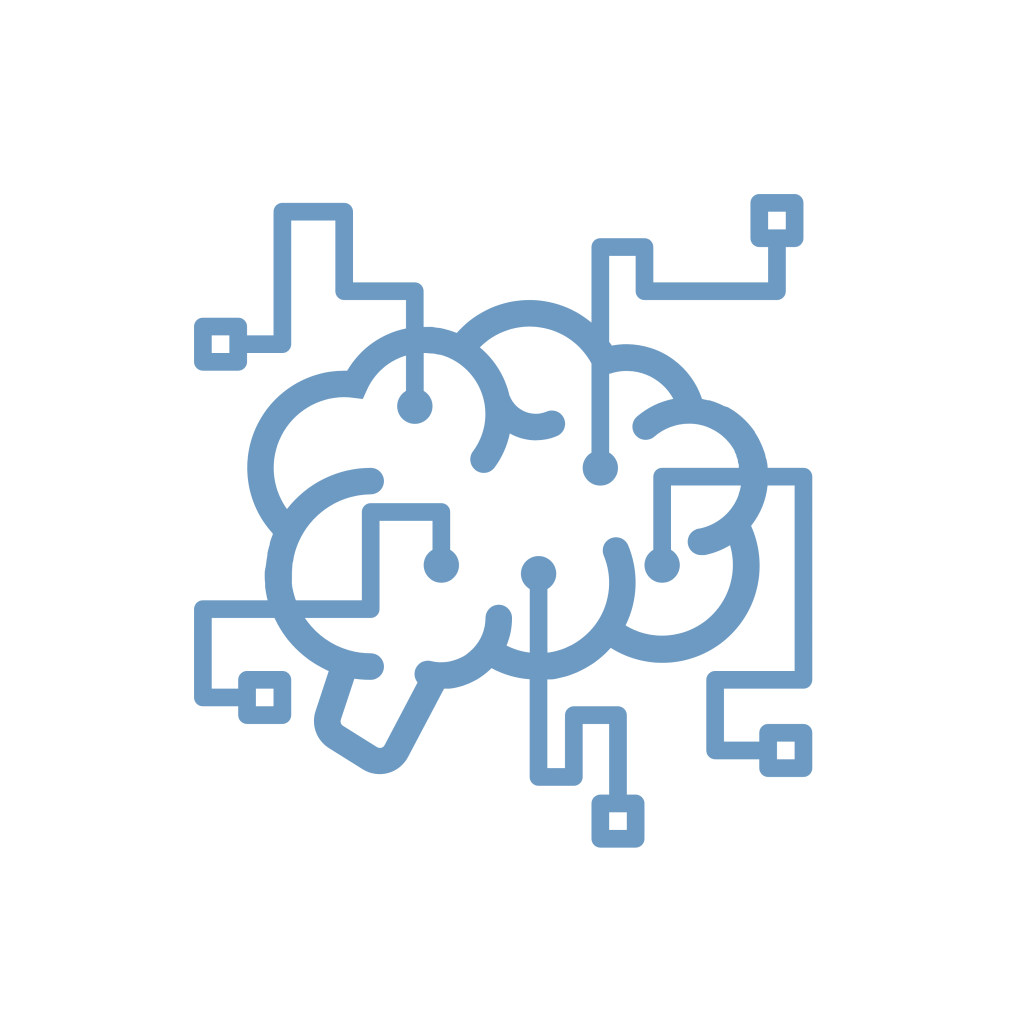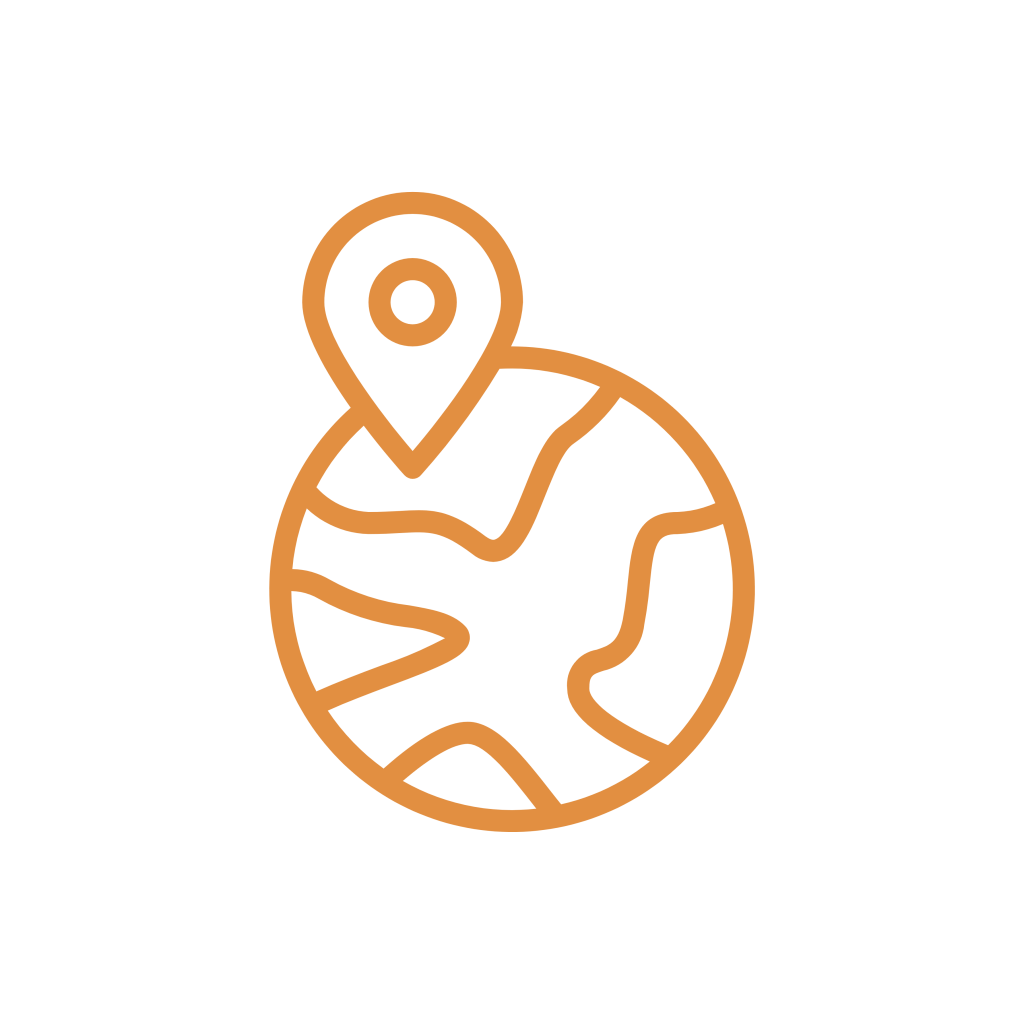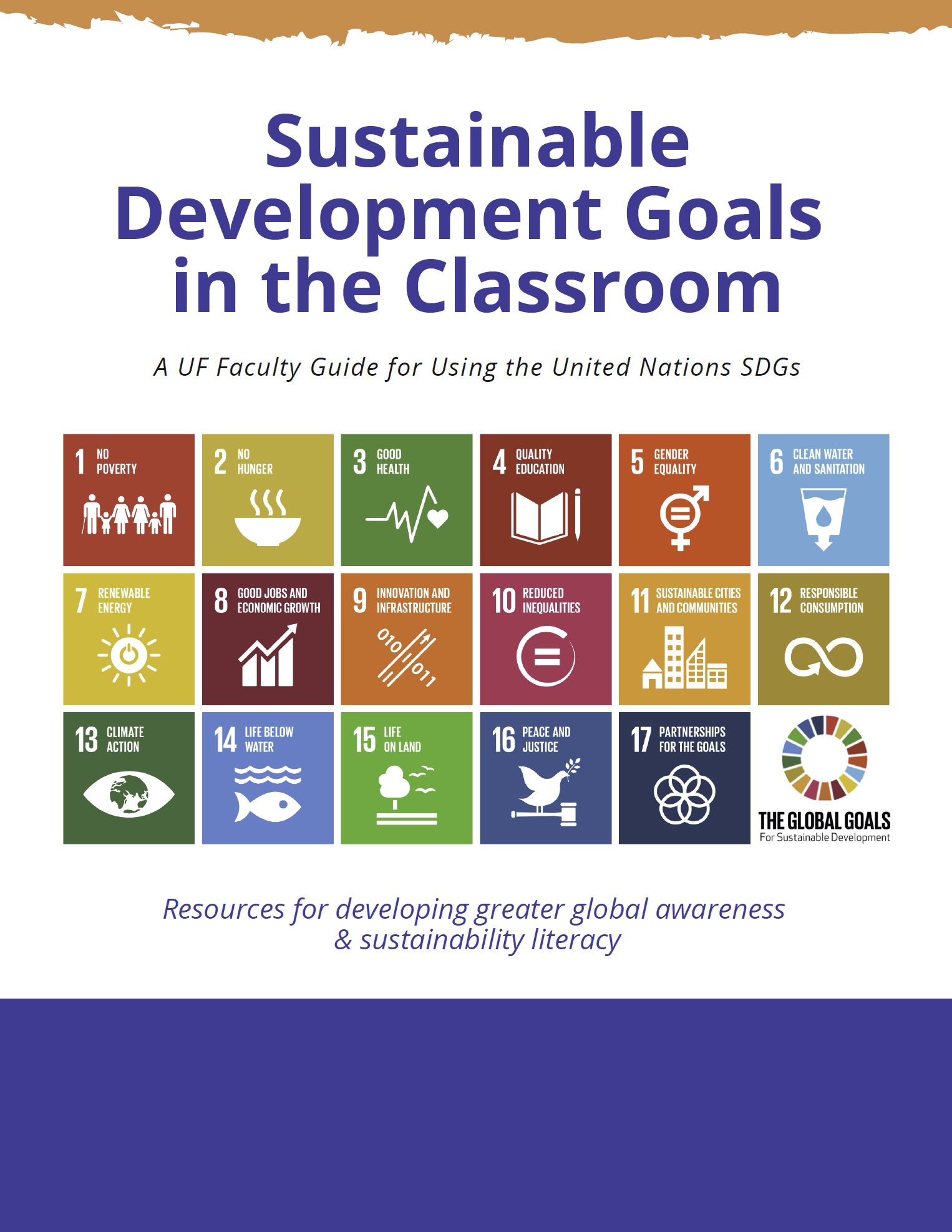Why … SBE Here Now?
A Four-Fold Fabric
The SBE program empowers curators, communicators, and decision-makers with the critical thinking capacity, analytical skills, and emerging lexicon to help communities cope with the changes and uncertainties central to the human experience in the bottleneck of the Anthropocene (the epoch or event defined by humanity as the prime mover of global change). We approach our work along a four-fold fabric in the tapestry of sustainability as we eat to thrive, dwell to survive, move to arrive, and commune to self-realize in all built environments along the rural-to-urban transect.
Sustainability makes no room for static structures and rigid foundations. Textiles wear with use, so SBE students serve as wisdom weavers at the loom of life, iteratively living, learning, and rethreading the tapestry of sustainability from the source, as its edges fray through time.
Like a signal that shatters the silence of our inattention, the song of the spheres sounds the call to save our spaceship Earth through stewardship of a safe operating space (SOS). You are neither a human has been, nor a human will be, but rather a human being … so SBE here now.
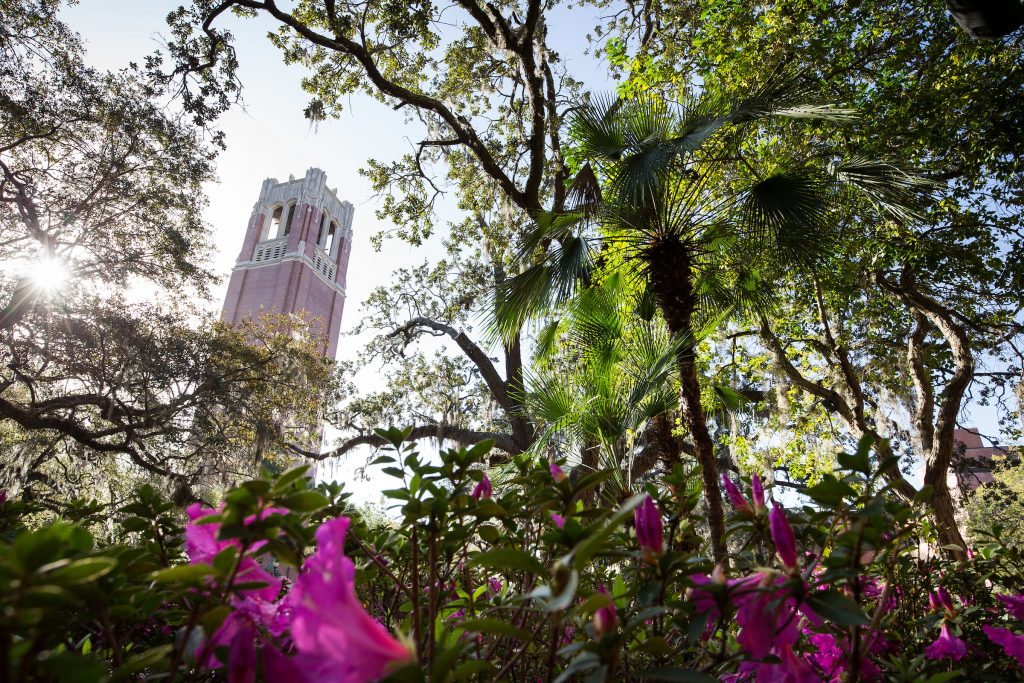
01. Planet
Threads tied to the atmosphere, cryosphere, geosphere, hydrosphere, and magnetosphere of our shared Earth, as a system of systems (parts are wholes and vice-versa across nested scales), and the ways we may manage the natural capital of its planetary processes in the Anthropocene (an age of human-driven accelerating change).
02. People
Threads tied to the biosphere (living beings) connected through the pace and pulse of our metabolic webs and the networked relations, rights, roles, rules, and responsibilities (interdependencies and regulatory feedback loops of living systems) that bound our biological and social capital in the physiological flux of life.
03. Purpose
Threads tied to the ethnosphere (ways of living) and noosphere (ways of thinking and communicating) which inform how we experience and come to know the world as we use intuition, think critically, navigate narratives, transform spaces into places, and cultivate collective human capital from micro to macro scales.
04. Prosperity
Threads tied to the technosphere (matter and energy transformations by humans) and cybersphere (information transformations by humans) through the iterative innovations empowered by our financial, manufactured, and machine capital, as modeled through digital twin decision support and regulated in equitable, efficient service to global well-being and the emerging regenerative economy.
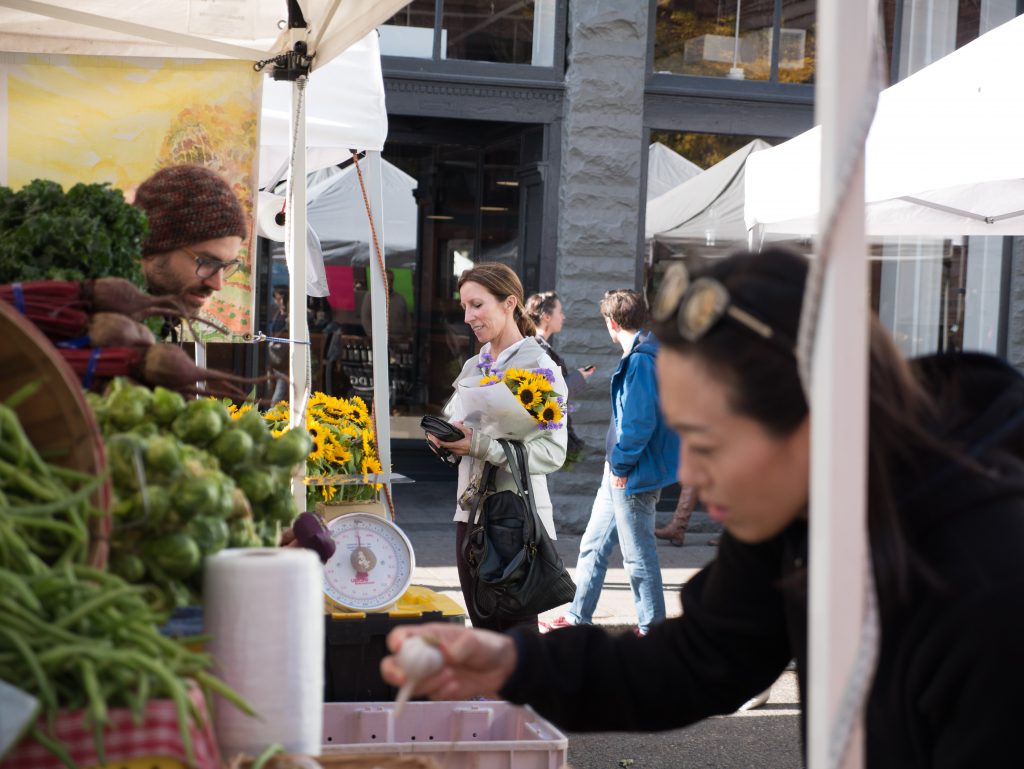
Sustainability (verb)
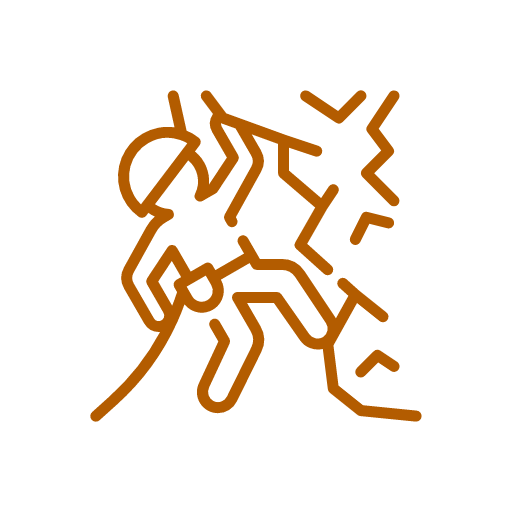
Sustainability is neither a person, a place, nor a thing. And it’s certainly not a checklist. Sustainability is an experience-based, value-derived, decision-making process to maintain a desired social-ecological system state, within a subjectively bounded space, for a defined span of time. While sustainability sometimes considers “tame problems” and evaluates potential solutions, mostly it works on “wicked problems“ (also called dilemmas or paradoxes) which may merely be managed.
Like climbing a mountain, conditions change, hand-holds evolve, and each position serves as the solution for the last and the problem of the next. No two ascents are the same and every climb starts anew. Neither the climber, nor the mountain, are the focus, but rather the essence of the climb itself.
(Source: Stockholm Resilience Centre)
Challenges to sustainability are endless in number and infinite in variety. Complications never cease to arrive, and today’s novel solutions evolve into tomorrow’s inevitable problems. Thus, sustainability must be an active condition of perpetual and persistent questioning and answering as we cope with complexity and adapt to uncertainty.
As it is with the horizon on our pale blue dot in the vastness of space, there are no ends to reach nor edges to risk, merely means to sense and make sense of organism Earth. To SBE, you must think outside of the box, then realize and respond with the attention, intention, and action that our collective potential is unbounded, yet grounded.
This is the nature of our work.
Degree Disciplinary Domains
The SBE program offers majors two specializations. Within the first, the Interdisciplinary Specialization, SBE students typically pursue one of two disciplinary domains, Green Protocols or Systems Thinking, which collectively support solutions related to green building, sustainability science, community resilience, and greenhouse gas emissions drawdown in diverse industries and institutions. Within the second, the Geodesign Specialization, SBE students focus on the science and applications which fuse design thinking with geospatial data analytics and decision-support to solve problems related to land use change and human habitation. We encourage you to learn more about these domains linked below.
SBE Integrates the SDGs
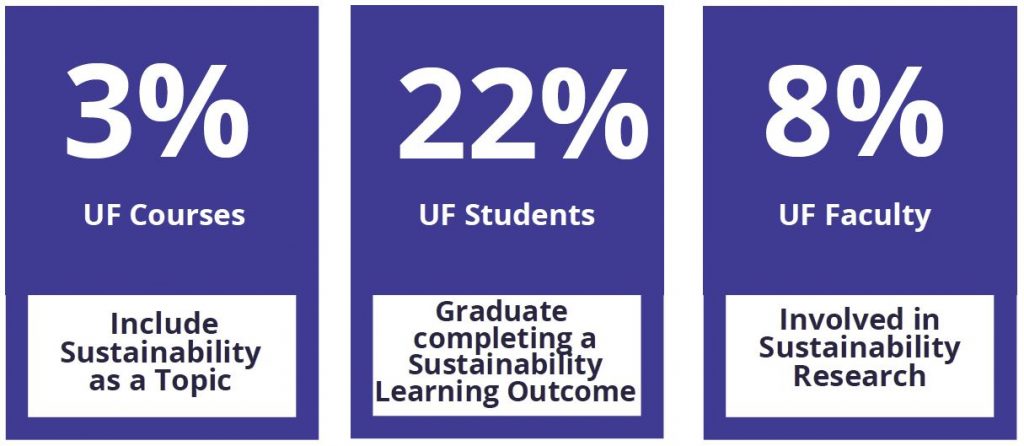
The language of sustainability increasingly infuses diverse realms of teaching, research, outreach, and operations at UF. The SBE program is proud to collaborate with other campus leaders promoting the principles and practices of sustainability through the lens of the United Nations (UN) Sustainable Development Goals (SDGs). The narrative that follows is excerpted from the introduction of the living document guiding UF’s integration of the SDGs within our classrooms. To learn more, we encourage you to read the guide…and walk the talk.
In September 2020, the Sustainable Development Solutions Network (SDSN) released Accelerating Education for the SDGs in Universities: A guide for universities, colleges, and tertiary and higher education institutions. The document expands upon the 2017 publication Getting Started with the SDGs in Universities. “As the providers of general, professional and vocational education across all disciplines, and reaching hundreds of millions of learners at all stages in their life, universities are in a unique position – and therefore have a critical responsibility – to provide ESDGs to as many learners as they can within their sphere of influence.” This new SDSN guide offers extensive resources and support for the SDGs in higher education institutions.
In January 2020, a group of faculty and staff connected to sustainability and SDG work on the UF campus gathered to discuss potential collaborations across programs. Over the past year, contributors gathered monthly to share resources and determine actionable items we felt would be beneficial to both our group and others. We believe the SDGs offer a framework for interdisciplinary work to advance global awareness and sustainability literacy. We desired to develop a tool to share more about how the SDGs can be an effective tool in the collegiate classroom.
This resulting brief resource offers faculty at the University of Florida a snapshot of the SDGs, current work within undergraduate and graduate courses at UF, and provides additional resources contextual to UF as you consider bringing an aspect of the SDGs to a course or campus effort. We recognize that this is a first step in connecting many ongoing efforts on campus under the umbrella of the SDGs and hope you will consider the ‘Next Steps’ section to help us continue building resources around the SDGs at UF.
SBE Interweaves DCP
Starting as the School of Architecture in 1925, the University of Florida College of Design, Construction and Planning (DCP) has grown to be one of the largest and most comprehensive design colleges in the country. The SBE Program is a natural extension of DCP’s history of excellence and a response to the profound challenges and creative opportunities for the human endeavor in the Anthropocene.
As an interdisciplinary program, SBE interweaves all of the DCP curricula. While DCP’s distinct programs are best suited to those students searching for highly targeted skillsets and career paths, the SBE Program is well suited to the generalist students who see their roles in the problems and solutions of a better built environment through the overarching lens of sustainability and community resilience.
